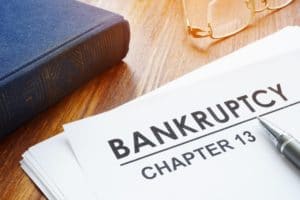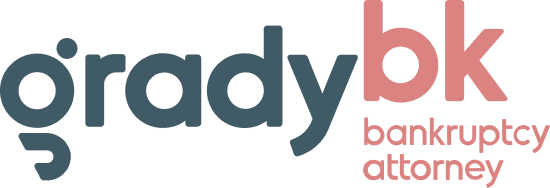What Happens When You Claim Chapter 7 Bankruptcy in New York?
When many hear the term “bankruptcy,” Chapter 7 bankruptcy is typically the type that comes to mind first. It’s a powerful legal tool designed to give individuals a fresh financial start. Chapter 7 bankruptcy allows you to clear away most of your unsecured debt, including burdens from credit cards, medical bills, personal loans, and certain taxes. This gives many a much-needed relief from the constant weight of debt.
If you’re carrying secured debt, like mortgages for homes or loans for cars and ATVs, Chapter 7 provides options. You have the choice to continue with the payments and keep the property, or you can decide to surrender the property, which would eliminate that debt. It’s a flexible approach tailored to your unique situation.
One of the most immediate benefits of deciding to file Chapter 7 bankruptcy is the protection it offers. Chapter 7 bankruptcy acts as a shield against aggressive collection actions. Repossessions, looming lawsuits, wage garnishments, and persistent calls from creditors all stop once Chapter 7 is filed.
However, it’s also important to be aware of its limitations. There are specific things like child support, alimony, student loans, and some tax debts, which Chapter 7 bankruptcy doesn’t cover. It’s crucial to understand what can and cannot be wiped out to set realistic expectations for yourself and your future.
At Grady BK, PLLC, we genuinely empathize with the emotional and financial strain you’re under. Bankruptcy can feel overwhelming, but remember, you’re not navigating it alone. As your Chapter 7 bankruptcy attorney, our first goal is to provide you with compassionate, clear, and efficient legal guidance. Every step taken is towards ensuring a brighter, more stable financial future for you.
What Assets Are Protected From Chapter 7 Bankruptcy in New York?
When you file for Chapter 7 bankruptcy relief, you will want to know what property you will be able to keep in your possession. Under New York bankruptcy law, you can choose whether to use the state or federal exemptions. Exemptions are what protect your property. For the most part, those who file for Chapter 7 bankruptcy relief can protect all their property and belongings.
For instance, retirement accounts, some real estate equity, up to a specific value for a motor vehicle, wedding rings, and up to a certain amount of cash can be considered exempt under either New York or federal bankruptcy statutes. As a Debtor, you may choose whether to adhere to state or federal exemptions, but you cannot pick and choose from both sets.
At Grady BK, PLLC, we can help you understand Chapter 7 bankruptcy exemptions and answer your questions as they arise. We aim to empower you to make fully informed decisions with greater certainty and confidence.
What is the Income Limit for Chapter 7 Bankruptcy in New York?
In order to qualify for Chapter 7 bankruptcy relief in New York, you must be able to demonstrate that your current household income falls below the median income for your family size in New York. Essentially, this so-called “Means Test” calculates your average monthly income and uses this figure to calculate your projected annual income. Once this projected annual income calculation has been made, it will be compared with other household incomes in New York based on the most current Census Bureau data.
It’s also important to note that the term “income” encompasses several sources beyond a steady paycheck from your employer. Hourly and overtime income, child support, alimony, dividends, royalties, pensions, annuity payments, unemployment compensation, and many other forms of income will be used to determine whether you qualify for Chapter 7 bankruptcy relief.
Even if your income exceeds the Chapter 7 New York income limit, you may still qualify for relief if you have deductible expenses, such as income taxes, child care expenses, health insurance premiums, union dues, and other acceptable deductible expenses. To learn more about qualifying for Chapter 7 bankruptcy relief in New York, get in touch with Grady BK, PLLC, at your earliest convenience.
Chapter 7 Bankruptcy in Central New York
In Central New York, navigating Chapter 7 bankruptcy has its specific details. It’s not just about national laws, but also about understanding our local rules and practices.
If you’re considering Chapter 7 bankruptcy, it’s crucial to know that Central New York has its own set of local trustees and court procedures. As your Chapter 7 bankruptcy attorney, we’re familiar with these details, and we make sure you receive accurate and locally relevant guidance.
Our region has specific property exemption laws. These laws determine which of your assets can be kept when filing Chapter 7 bankruptcy. We’re here to make sure your assets are protected according to local standards when you file bankruptcy Chapter 7.
After filing, Central New York offers local resources to help residents get back on their feet. We can connect you with these resources, from credit counselors to financial education programs tailored to our community.
At Grady BK, PLLC, we’re not just any Chapter 7 bankruptcy attorney. We’re a Central New York Chapter 7 bankruptcy attorney. We understand our region, its rules, and its people. Trust us to guide you through Chapter 7 bankruptcy with clear, straightforward advice tailored to our community.
How Long Does it Take to File for Chapter 7 Bankruptcy in New York?
Chapter 7 bankruptcy tends to be the quickest path to debt relief for individuals and families. Once you have completed the required paperwork, you can expect to attend the Meeting of Creditors (also called a 341 Meeting) and answer questions about your finances (we are there with you). After you have completed the required online financial management training course and fulfilled any other obligations, you can expect to receive a formal discharge of your debts. Generally speaking, the entire Chapter 7 bankruptcy process usually takes about three months from start to finish.
Steps To File Bankruptcy Chapter 7:
- Consultation: Start with a meeting at Grady BK, PLLC. Jessica Grady, our Chapter 7 bankruptcy attorney, will look into your financial situation to see if Chapter 7 bankruptcy is a good fit for you.
- Credit Counseling: Before you can move ahead with Chapter 7, you must attend an online credit counseling session with an approved agency. It’s a step to help you understand your finances better.
- Paperwork: Gathering your financial details is the most important part. Together, we’ll work on your Chapter 7 bankruptcy forms, ensuring everything is accurate and complete.
- Filing: Once we’re ready, Jessica will file your Chapter 7 bankruptcy with the court. This stops creditors in their tracks, giving you some breathing room.
- 341 Meeting: This is a short meeting with your creditors and a trustee. They might ask questions about your finances, but remember, it’s just part of the Chapter 7 bankruptcy process.
- Financial Management Course: After filing, it’s good to learn about managing finances. A short online course will give you tips for a secure financial future post-Chapter 7 bankruptcy.
- Discharge: Once all steps are done, you’re free from most old debts. You’re now ready to start fresh with the tools and knowledge to rebuild a brighter financial future.
Grady BK, PLLC, Offers Chapter 7 Bankruptcy Services For Clients In These Locations
- Liverpool
- Watertown
- Oswego
- Utica
- Cortland
- Auburn
- Broome County
- Cayuga County
- Chenango County
- Cortland County
- Delaware County
- Fulton County
- Hamilton County
- Herkimer County
- Jefferson County
- Lewis County
- Madison County
- Montgomery County
- Oneida County
- Onondaga County
- Oswego County
- Otsego County
- St. Lawrence County
- Tioga County
- Tompkins County
Schedule Your Free Phone Consultation Now
Call Grady BK, PLLC, today at (315) 299-9005 to talk to a compassionate bankruptcy attorney about whether filing for Chapter 7 bankruptcy is right for you.
Call today or send us a message.






